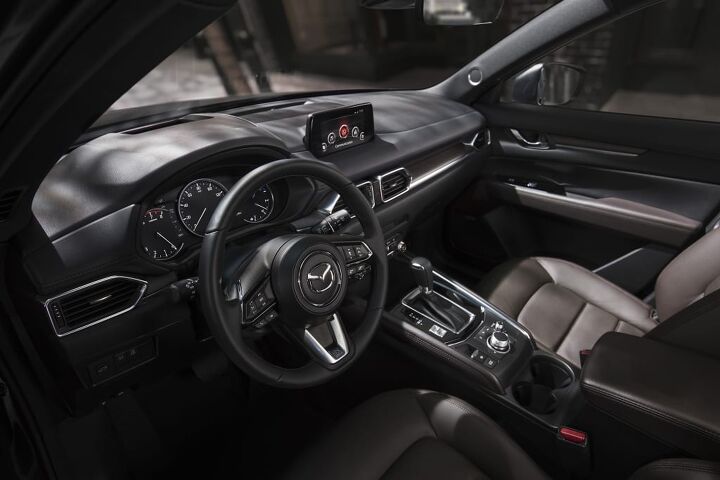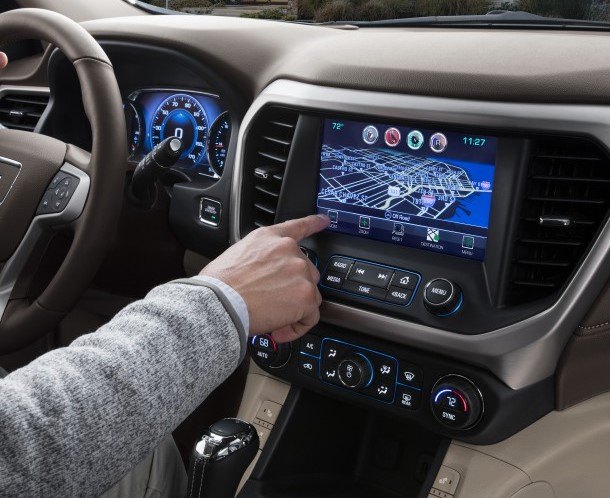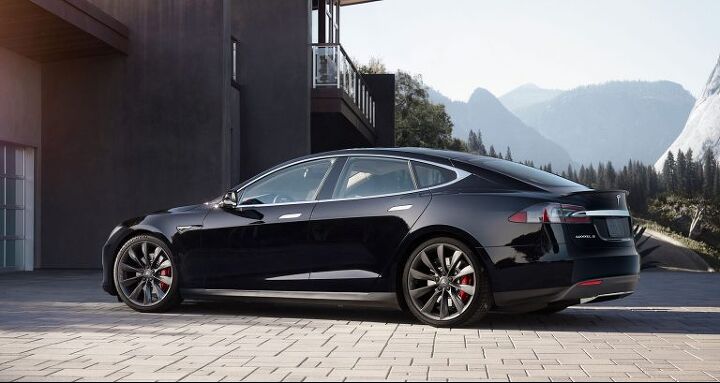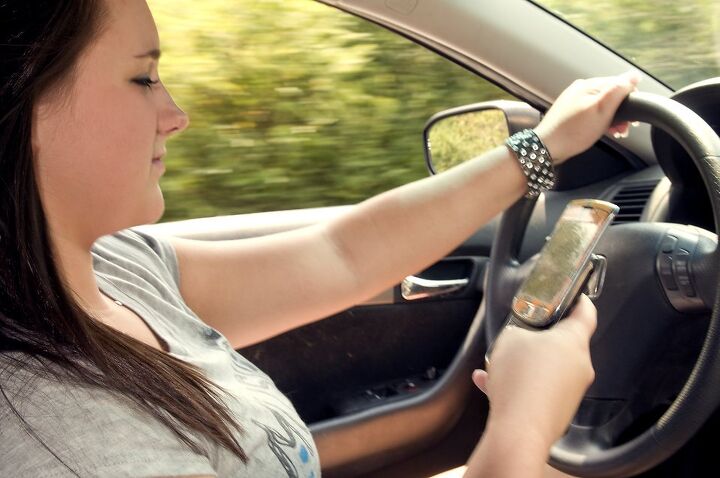#aaa
AAA Research Lays Out How Temperature Affects EV Range
While we all know extreme temperatures influence the performance of electric vehicles, there isn’t a wealth of comprehensive studies on the matter. Hoping to impart some knowledge on the subject, the American Automobile Association released a report on Thursday that examines how climate impacts EVs.
AAA offered an abridged version in 2014, when it claimed data from its Automotive Research Center (ARC) showed battery-only driving range can be nearly 60 percent lower in extreme cold and 33 percent lower in extreme heat. However, the new study fine-tunes those numbers while exploring other avenues of how EV performance can suffer.
AAA: There's Too Many Driver Assistance Tech Names
If you read this website regularly, browse automobiles online, or have taken a trip to the dealership within the last couple of years, you’ve probably noticed the countless names applied to driver assistance systems appearing in new cars. It’s the result of automakers wanting proprietary names for these features that they think sound catchy.
Not everyone is a fan. The American Automobile Association (AAA) doesn’t feel that “having twenty unique names for adaptive cruise control and nineteen different names for lane keeping assistance” helps consumers make informed decisions.
According to its own research, AAA claims that advanced driver assistance systems (ADAS) were available on 92.7 percent of new vehicles on sale in the United States as of May 2018. That makes them next to impossible for consumers to avoid. Thus, the motor club group feels it’s time for automakers to standardize their naming strategies — if for no other reason than to help preserve our sanity.
Why Are Fatal Hit-and-run Accidents At an All-time High?
Roadway fatalities have been on the decline relative to population since the 1970s. However, the safest year on record since car ownership became commonplace was actually 2014. Deaths spiked in the following two years, with a very modest decline in 2017. While some of the increase can be attributed to more people driving more miles than ever before, accounting for both elements still results in a higher overall rate of fatal incidents.
Hit-and-run statistics mimic this trend, with 2,046 pedestrian deaths reported in 2016. It’s not the total number that’s alarming — it’s the rate of increase, too. The AAA Foundation for Traffic Safety now claims hit-and-run fatalities are becoming a serious issue; reported incidents within the United States have seen a 60-percent increase since 2009. In fact, they’re the highest they’ve been since the NHTSA started keeping track in 1975.
AAA: New Safety Tech Effectively Doubles Cost of Minor Repairs
Advanced safety tech may save your skin, but it certainly won’t spare your wallet in the event of a minor accident. According to research from the American Automobile Association, replacing and/or recalibrating the sensors needed to allow modern driving aids to function properly are severely inflating the cost of even minor repairs.
Unfortunate, considering features like blind spot monitoring and automatic emergency braking are cropping up as standard equipment on even the most affordable rides. Car ownership continues to get more expensive and there doesn’t seem to be much we can do about it — with one exception.
Scary Stats: Drivers Don't Know Jack About the Tech In Their Car
Over the weekend, I found myself conversing with a young woman who admitted to being slightly creeped out by modern automotive technology. She had a bone to pick with everything from push-button ignitions to adaptive cruise control. It was surprising admission from an individual who is planted squarely in the middle of the Millennial age bracket and has no serious interest in cars, but one I’ve been hearing more often lately.
The American Automobile Association seems to be rather touchy on the issue, as well. Much of its interest in the subject revolves around present-day tech lending itself to distracted driving, something it is firmly against. But the AAA Foundation for Traffic Safety appears absolutely convinced that the introduction of advanced driver assistance systems will save lives. However, it also believes that its full potential won’t be unlocked until consumers accept these technologies, understand how to use them, use them as intended, and avoid misusing or becoming over-reliant on them.
Frankly, that sounds like wishful thinking. So long as advanced driving aids exist, they’ll probably be misunderstood and misused. People don’t even use their turn signals correctly, for Christ’s sake.
Drowsy Driving Might Be a Bigger Problem Than Previously Thought
Back in 2014, an American Automobile Association study estimated that tired motorists were responsible for around 328,000 accidents annually — 6,400 of which were fatal. However, unlike drunk driving, there’s no sound metric for assessing the true scope of the problem. Getting tired is something that just sort of happens. People don’t stay out all night not sleeping because it’s fun, the police can’t test for it, and almost nobody is going to say they were dozing off behind the wheel in an accident report — either because they are too embarrassed or stopped feeling tired at the moment of their brush with death.
That makes the issue a bit of a phantom menace. We all know it’s a problem, but the frequency remains debatable. Fortunately, a new study released by AAA this week helps clear things up. Researchers affixed dashboard cameras to 3,593 vehicles in order to monitor the drivers’ faces, then used a PERCLOS-based fatigue monitoring strategy to come to the conclusion that drowsiness is a contributing factor in 10.6 to 10.8 percent of all accidents resulting in significant property damage, airbag deployment, or injury.
Won't Get Fueled Again: AAA Testing Suggests Premium Gas, for the Most Part, Isn't Worth Your Cash
Most readers of this site know exactly what an octane rating is and how it relates to the bang it provides in an engine. Hauling up to the pumps and being presented with a choice of everything from 87 to race gas is one of the benefits of living in America.
Higher octane fuel is more expensive than other grades and the gulf between regular and super-duper-extra premium is steadily increasing. Is it worth “treating” your car to a tank of high octane every now and then? The American Automobile Association says absolutely not — and they have the testing to back it up.
Driving Tired Remains a Persistent Problem With One Solution: Study
We’ve all been there. It’s late, we haven’t slept enough, and we’re cruising down a chilly freeway wrapped in warmth and white noise. Then, unexpectedly, we begin to nod off. From here, we can either spring back to a terrified state of consciousness that will sustain us the rest of the journey or we can fall asleep and ultimately destroy our vehicle — and maybe ourselves — in the process.
Drowsy driving is a real problem. But, while we’re always hearing about how it’s just as dangerous as driving drunk, we don’t often see statistics backing that up. That’s mainly because it’s a lot harder to assess someone’s tiredness than it is to give them a breathalyzer and toss them in the back of a squad car. But a 2014 study from the AAA Foundation for Traffic Safety estimated drowsy drivers could contribute to 328,000 accidents annually, with around 6,400 being fatal.
Doing the Math: Over a Quarter of New Cars Do Not Come With a Spare Tire
It always happens when you aren’t expecting it. You’re cruising along in your automobile, listening to the radio and making wonderful time. Then, all of a sudden, the steering feels odd — there is an overabundance of vibration and the car keeps pulling to one side. You’ve got a flat tire.
Annoying, to be sure. Fortunately, this isn’t your first rodeo and you pull off to swap the punctured rubber with a spare. However, if you own a brand new car, you might be disappointed to learn there’s decent chance it doesn’t even have one. According to a recent study conducted by the American Automobile Association, 28 percent of 2017 model-year vehicles aren’t equipped with spare tires — leaving you breaking out the compressed air and sealant or calling for a tow truck.
AAA Study Finds Infotainment Systems Dangerously Distracting
Automobiles are more tech-laden than ever and, according to a recent study, those interactive bells and whistles contribute heavily to distracted driving.
With connected cars ready to shoot off assembly lines and into driveways at an accelerated pace, the danger of someone flicking through their dashboard menus when they should be looking at the road is only going to grow. Many states prohibit phone usage while driving, yet there is no law against setting your radio pre-tunes or customizing your digital dashboard while hurtling down the expressway — not that there necessarily should be.
However, the American Automobile Association’s Foundation for Traffic Safety commissioned researchers from the University of Utah to examine the physical and mental demand required to complete various tasks using the infotainment systems in 30 new 2017 vehicles. The conclusion was that the growing cavalcade of buttons, screens, and technology does an incredibly good job at keeping you from minding the road ahead.
Tesla Motors Annoyed After AAA Raised Insurance Rates on Its Cars
The American Automobile Association thinks Tesla cars should cost more to insure due to abnormally high claim frequencies and expenditures compared to similar vehicles. The group said premiums for Tesla’s Model X and Model S could increase by up to 30 percent, based primarily on data from the Highway Loss Data Institute. “Looking at a much broader set of countrywide data, we saw the same patterns observed in our own data, and that gave us the confidence to change rates,” said Anthony Ptasznik, chief actuary of AAA.
Obviously, Tesla Motors isn’t pleased and is offering a rebuttal before other insurers follow in AAA’s footsteps.
Forget Automakers, Now AAA Wants to Lend You a Car
Automakers, both domestic and come-from-away, all want you to do the next best thing if your meager funds aren’t enough to get you into a showroom: borrow a car.
Ride-sharing services provide mainly urban dwellers with the car they so desperately crave, without the years of payments or need to find permanent parking. And, if an automaker partners up with a service provider — or creates its own — there’s still money flowing back to the offices of Big Auto. Win-win, no?
The growing trend is hard to ignore, and it means that automakers — already new to the game — face ever greater competition, even from unlikely sources. The latest company to offer a ride-sharing service isn’t a manufacturer at all. It’s the American Automobile Association.
Try to Avoid Offending Other Motorists, AAA Warns North Jersey Drivers
Warm spring weather seems to have motorists in northern New Jersey acting on their not-so-best behavior. So much so, that a local American Automobile Association branch has issued a plea urging motorists to avoid road rage and “resulting driver confrontations.”
The Situation needs to simmer down.
The Average American is Seriously Afraid of Autonomous Cars: Study
There is something uncanny about a car that can drive itself. If you transplanted the world’s first motorists into a modern autonomous vehicle and let it lose on a track, they’d probably surmise witchcraft as the only plausible explanation and jump out in terror. Humans are innately distrustful of anything unfamiliar — it’s an important part of our survival strategy as a species. With that in mind, it isn’t surprising to hear that many Americans are a little wary of self-driving cars.
However, a recent study from the American Automobile Association suggests it might be more serious than that. The vast majority of surveyed Americans admitted to being “afraid” of riding in an autonomous vehicle while over half said they felt less safe at the prospect of sharing the road with driverless technology. This isn’t likely to be welcome news for automakers, considering that every major manufacturer is currently investing heavily into the computer and industrial sciences required to make autonomous tech possible.
Study Shows Millennials Are the Worst Drivers, Like You Didn't Know
The AAA Foundation for Traffic Safety (a research arm of AAA) released a report yesterday detailing their findings on hazardous driving behaviors across different age groups.
Unsurprisingly, Millennials fared about as well as they might if they stepped on your lawn.






























Recent Comments